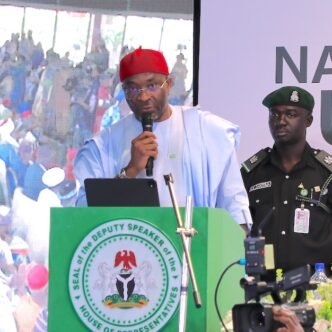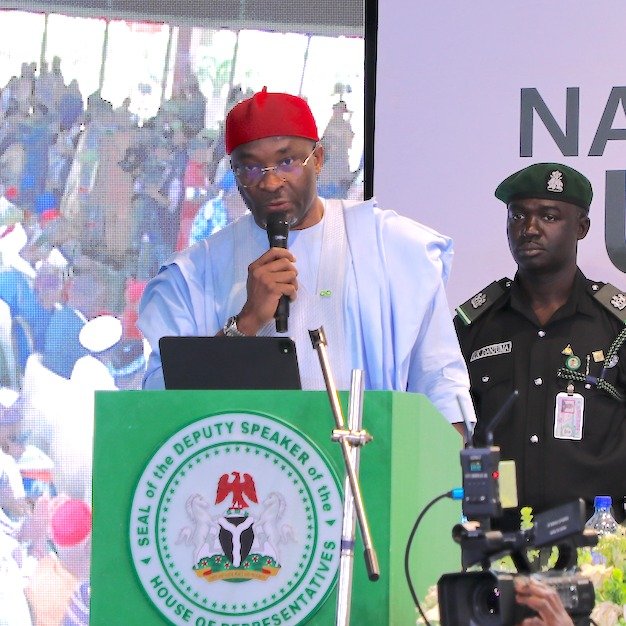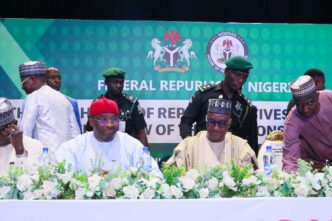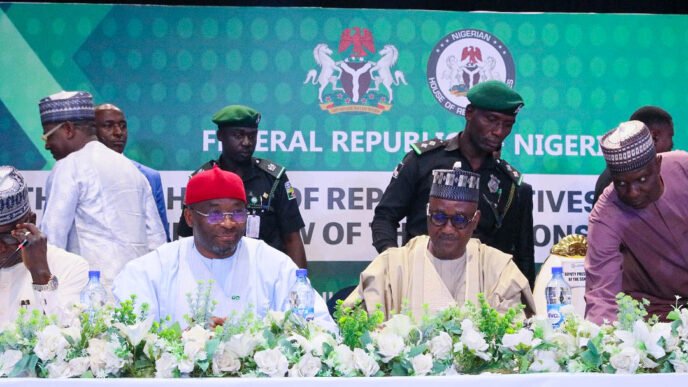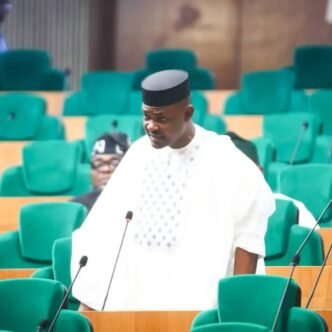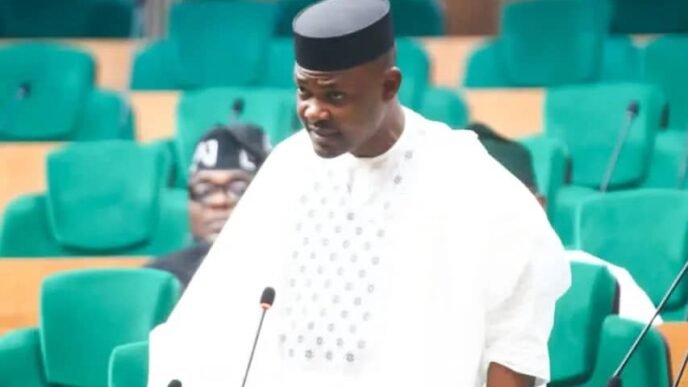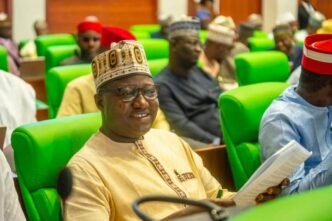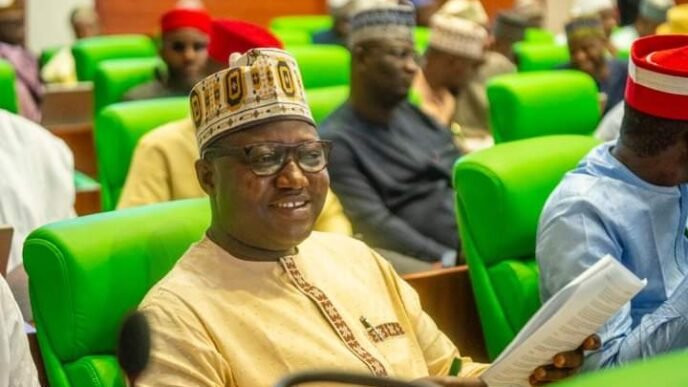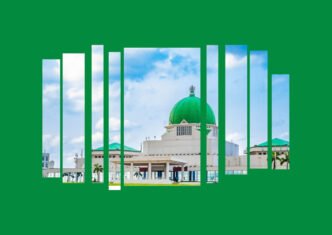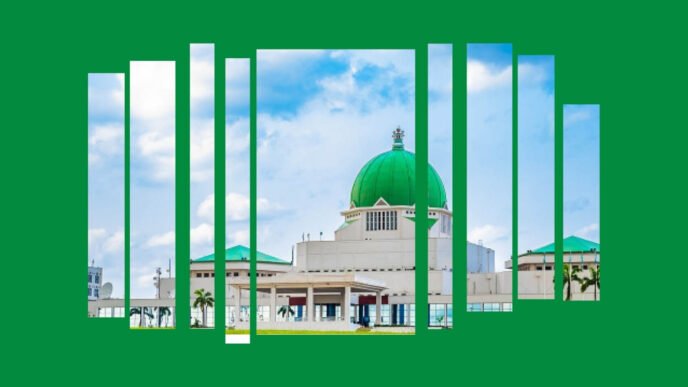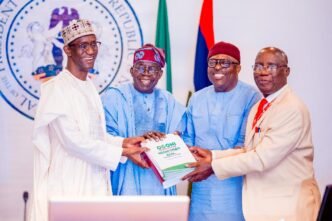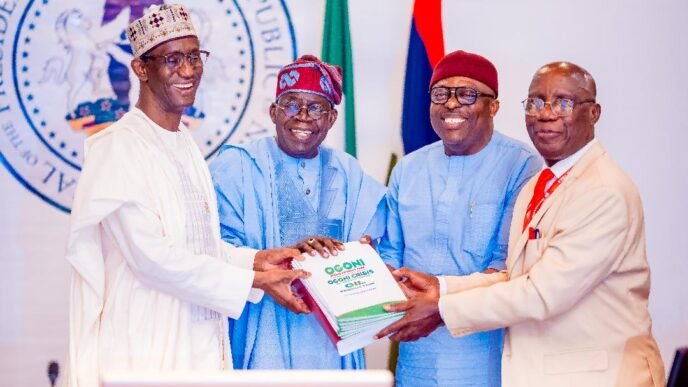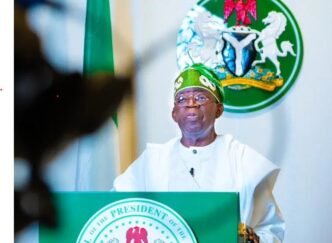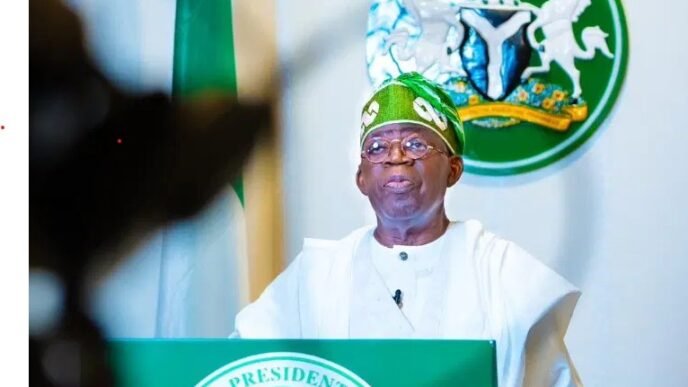The House of Representatives Committee on Constitution Review (HCCR) convened the National Public Hearing on the Review of the 1999 Constitution at the Congress Hall of Transcorp Hilton, marking the final phase of public consultations following extensive sessions across Nigeria’s six geopolitical zones.
This National Public Hearing marks a pivotal step in Nigeria’s ongoing constitutional review, a process aimed at reshaping the supreme law to reflect the aspirations of the people and meet the challenges of the 21st century. Building on decades of constitutional evolution, the House Committee on Constitution Review has undertaken the most inclusive consultation in Nigeria’s history, engaging legal experts, civil society, women’s groups, security agencies, and citizens across all six geopolitical zones.
The 87 amendment bills under consideration address critical areas including electoral reform, devolution of powers, local government autonomy, security, and gender inclusion, with proposals such as independent candidacy, state policing, guaranteed local government independence, and reserved seats for women in legislative houses.
While today’s hearing represents the final stage of direct public input, the process continues through rigorous legislative scrutiny and state assembly approvals, with transparency and citizen accountability at its core. In his address, Deputy Speaker of the House of Representatives and Chairman of the House Committee on Constitution Review, Rt. Hon. Benjamin Okezie Kalu, emphasized that “ultimately, the reforms belong to the Nigerian people, whose voices and active participation remain essential to shaping a constitution that embodies unity, justice, and progress for future generations”.
Read the full text of his speech below:
Sep 22, 2025
Deputy Speaker’s Address at the Constitutional Review Committee
National Public Hearing
It is with a sense of national duty and great optimism for the future of our
nation that I welcome you to this national public hearing. We are here to
engage in a foundational act of nation-building: the collective reimagining
and reshaping of the supreme law of our land, the Constitution of the
Federal Republic of Nigeria.
Our journey as a nation has been a relentless quest for a more perfect
union. It is a journey marked by the triumphs and tribulations of forging a
single national identity from a magnificent diversity of cultures, languages,
and histories. From the colonial-era Clifford Constitution of 1922 to the
current 1999 Constitution, each iteration of our grundnorm has been a
mirror reflecting our society at a point in time, its aspirations, its anxieties,
and its unresolved questions.
The challenges of the 21st century demand a constitution that is not an
artifact of the past, but a dynamic blueprint for the future. It must be a
constitution that is not only legal but also legitimate; one that commands
the respect and allegiance of every citizen because they see their hopes,
their values, and their fundamental rights reflected in its text.
This is the solemn mandate of the House of Representatives Committee on
Constitution Review. Since our inauguration, we have embarked on the
most comprehensive and consultative review process in Nigeria’s
democratic history. We have held retreats with legal scholars and technical
consultants, convened dialogues with the judiciary, security agencies, and
national women groups, engaged with our vibrant civil society, and held
zonal public hearings across all six geopolitical zones of our great nation.
Before us is a compendium of 87 proposed amendment bills, each a
response to the felt needs and expressed desires of the Nigerian people.
They are organized around the central pillars of a modern, functional, and
just society.
I must clarify, as we proceed, that the items and amendment proposals
before us today are not yet laws. These are, at this stage, proposals,
suggestions, and ideas that have emerged through one of the most
inclusive and participatory exercises in Nigeria’s constitutional history.
Importantly, these proposals do not simply represent the agenda of the
legislature; instead, they are, first and foremost, the thought-out demands,
hopes, and memoranda of the Nigerian people themselves, gathered
through extensive regional dialogues and topically-focused public hearings
held across the nation.
It is, therefore, essential that the process is not misconstrued. The
constitutional amendment journey is designed to be transparent,
participatory, and fair. These are not the fixed positions of the National
Assembly, but a compilation of the aspirations and contributions of citizens
from all walks of life, yet to pass through the sieving net of the National
Assembly at the federal level and the pruning forks of scrutiny at the State
Houses of Assembly. Today, as we commence this National Public Hearing,
we are opening the floor one last time for those who, for any reason, may
have missed the regional sessions. We do this to remove every excuse of
not being heard; to ensure, in good faith, that the final product of this
exercise belongs to, and is accepted by, all.
Yet, let us also be clear: while today represents the final stage of direct
public engagement in this constitutional review process, it is, by no means,
the final day of work. Rather, it marks the transition to the next phase,a
return to the deliberative chambers of the parliament, where all
submissions will be critically sifted, refined, and improved upon in
preparation for the momentous task of voting.
We are considering extensive electoral reforms, including proposals for
independent candidacy, the establishment of an Electoral Offences
Commission, and a fixed timeline for the determination of pre-election
matters to ensure that the will of the people is never again subverted by
legal technicalities.
We have before us bold proposals on the devolution of powers. The
landmark bill to move policing from the Exclusive to the Concurrent List,
enabling the creation of state and community police forces, is a direct
response to the clarion call for localized solutions to our security
challenges.
We are tackling, head-on, the long-standing issue of local government
autonomy. The bills before us seek to guarantee the financial and
administrative independence of our local governments, ensuring that
development is not an abstract concept dictated from afar, but a tangible
reality in our communities.
Perhaps most importantly, we are confronting the systemic exclusion that
has held our nation back. We also have transformative bills to create
reserved seats for women in our legislative houses, to guarantee gender
balance in government appointments.
I must commend the visionary leadership of His Excellency, President Bola
Ahmed Tinubu, GCFR. His Renewed Hope agenda has created the political
will and the enabling environment for this ambitious constitutional renewal.
His respect for the separation of powers and his commitment to the rule of
law have been indispensable.
But let me be unequivocally clear: the ultimate authority for this process
does not reside in the executive or the legislature alone. It resides with you,
the sovereign people of Nigeria. Your voices, your memoranda, and your
passionate arguments have brought us to this point. And your continued
engagement is crucial to see this through.
Constitutional reform is a marathon, not a sprint. The bills validated here
will face the rigorous scrutiny of the plenary, the complex process of
harmonization with the Senate, and the final, critical hurdle of approval by
at least 24 State Houses of Assembly. Therefore, I implore you: do not let
this be the end of your participation. Hold your elected representatives
accountable. Engage with your state legislators. Ensure that the reforms
you champion here today are not diluted or discarded on the long road to
enactment.
In alignment with our commitment to transparency and accountability, the
final harmonized position of the National Assembly will be made available
to the public before the voting process commences. In this spirit, I wish to
specifically thank the Governors of all the states that generously hosted the
regional public hearings for their hospitality and support. I equally extend
my deepest appreciation to all members of the Constitution Review
Committee, whose tireless effort and dedication have made this process
possible.
Distinguished ladies and gentlemen, Nigeria’s greatness has always been
forged in the crucible of dialogue. It is our unique ability to talk, to argue, to
disagree, and ultimately, to find common ground that defines us. Today, let
us honour that noble tradition. Let us rise above the narrow confines of
ethnicity, religion, and region, and embrace our shared destiny as
Nigerians.
Let us, together, craft a constitution that will be a legacy of unity, justice,
and progress for generations yet unborn. A constitution that truly reflects
the indomitable spirit of our people and the boundless promise of our
beloved nation.
Thank you. May God bless you all and may God bless the Federal Republic of Nigeria.
